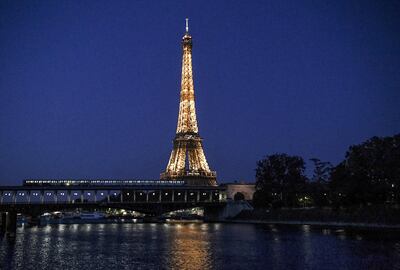Millions of people in Europe's largest cities will join London by celebrating Christmas under tough lockdown restrictions.
Europe is currently battling a winter surge and has become the first region in the world to pass 500,000 deaths from Covid-19 since the pandemic broke out a year ago.
On Saturday, Prime Minister Boris Johnson announced a new "stay at home" order for London and south-east England – an area including about a third of the UK's population.
The move follows alarm at the speed at which the virus was spreading and over a new strain that Johnson said was "up to 70 per cent more transmissible".
"It is with a very heavy heart I must tell you we cannot continue with Christmas as planned," Mr Johnson told the nation in a televised briefing.
London's hospitals have felt the strain in recent weeks. The UK's Department of Health reported 2,726 patients were being treated for Covid-19 in London hospitals, with 211 fatalities in the past week.
Meanwhile, residents in Berlin are facing a month-long lockdown after a record 30,000 new infections were reported on Thursday.
The new restrictions, including closures of schools and non-essential shops until at least January 10, demonstrate the seriousness of the situation in Europe's largest economy.
The measures have forced the closure of the city’s famous Christmas markets selling food and mulled wine.
Parisians are under a nationwide curfew between 8pm and 6am, which will be lifted for Christmas Eve but not on New Year's Eve.
However, bars, restaurants, theatres and cinemas in the French capital will remain shut during this period.
Cities in Italy will endure severe restrictions until January 6 that will include limiting people to leaving their homes once a day, closing non-essential shops, bars and restaurants and curtailing travel between regions.
Non-essential shops will be shuttered between December 24 and 27, December 31 and January 3 and January 5 and 6.
Italy reported 553 coronavirus-related deaths on Saturday, the health ministry said. The daily tally of new infections was 16,308, down from 17,992.
Amsterdam is in a five-week lockdown after cases in the Netherlands jumped by nearly 13,000 in 24 hours, hitting a record for the second day in a row.
Restrictions will ease slightly for the three days of Christmas, but a New Year fireworks ban has been put in place.
In Vienna, restaurants and hotels will remain shut and schools will not reopen as usual after the Christmas holidays. The measures take effect on December 26 and will lift on January 18.
“The forecast for the first quarter is very, very dark,” Austrian Chancellor Sebastian Kurz said. “The growth of infections could turn exponential again at any time.”
In Sweden, all licensed bars and restaurants must stop serving alcohol by 10pm and close by 10.30pm until the end of February.
Swedes have been advised to meet a maximum of eight people and to gather outdoors if possible and avoid travelling by train or bus.



